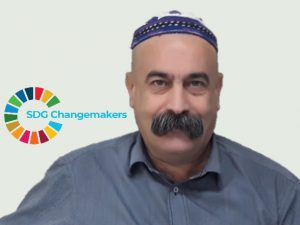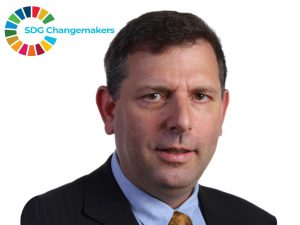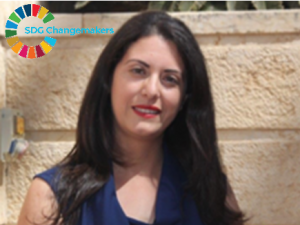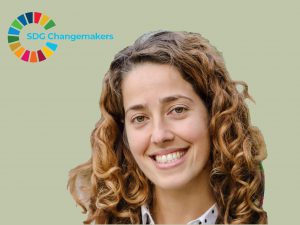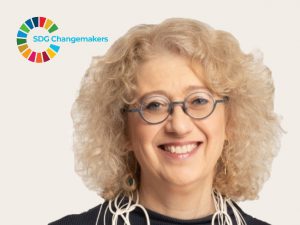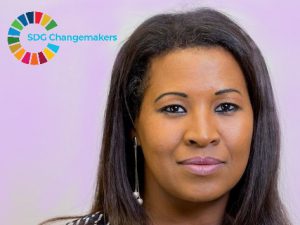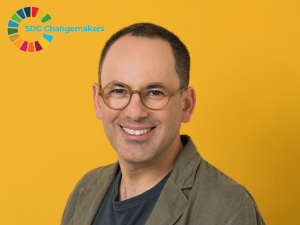Vice Director General, Director of the Administration of Technological Education
Ministry of Education
SII: Briefly describe your work
MF: Since 2014, I have been leading the Israel Ministry of Education’s Bureau for National Programs, the largest of which is the program to double the number of students learning the most advanced level of math – five study units. Recently, I also began managing the Ministry’s Science and Technology Administration.
All my life I have been an educator. I started as a teacher and school principal, and progressed to supervisor and then district supervisor, in charge of education in the Druze sector.
SII: What are the three values that guide you in your work?
MF: The key values that have constantly guided me, especially in the last few years managing programs at the national level:
- Equality, which finds its expression in offering equal opportunity for every student in Israel, male and female.
- Excellence, which elevates the entire population. Excellence is not an elitist concept reserved for a particular segment of the population.
- Love of humankind, both in relation to managing those working for me and at the level of personal ideology.
SII: What is the driving force behind your motivation to make a change?
MF: My motivation stems from my values, which find their expression in programs to reduce gaps with the help of advanced math and science. I attach great importance to fully realizing the potential of all Israel’s communities and citizens – among them Arabs, Bedouins, Ethiopians and women.
When we embarked on our efforts we quickly noticed on the one hand the gaps between boys and girls, center and periphery, and on the other hand could also see that Israel is host to hundreds of multi-national corporations in need of manpower. Our desire to bridge between the potential of students and the needs of corporations led us to create an amazing social project. In effect, we turned the field of math – considered dull, a bunch of formulas – into a tool for social integration.
SII: What positive influence do you see during your work?
MF: In a nutshell: promoting math, technology and science in Israel; reducing gaps in Israeli society; and developing sophisticated technological tools for the advancement of teaching and learning.
The country was in a deep crisis during the years preceding our initiative; between 2006-2014 the number of students in five-unit math study declined by 30%. The percentage of Israeli students studying at an advanced math level was also low in comparison with other western countries.
The five-unit math study program provided equal opportunity to all students no matter where they live, whether in Kiryat Shmona in the north or Rahat in the south. The steadily rising numbers prove that.
When we started, we discovered that most of the 500 (out of 1,100) schools that did not have any students taking five-study unit math matriculation exams were in the low socio-economic cluster. We offered them possibilities for the first time, 70 years after the country’s founding. I recall meeting three students from Jisr al-Zarka (a low socio-economic cluster Arab village) who went on to study computer science thanks to the program; it’s very moving to know that we got them onto Israel’s highway.
SII: How has COVID-19 affected your work?
MF: Unfortunately, the corona pandemic has affected all areas of life in Israel, including the way in which schools operate. Recently, we have been trying to find creative solutions to help students correctly cope at both the academic and emotional level.
SII: With which project do you particularly identify?
MF: The most important project in my opinion is to promote excellence in math, science and English in the periphery. Within the framework of this project, we support 26 local authorities from all sectors in Israeli society, to ensure that their achievements in these important subjects will be at least as high as the national average.
More about Muhana Fares
Prior to his current role, Muhana headed the Education Ministry’s Program for the Advancement of Mathematics and Scientific Excellence. During his career he has held various positions with the Education Ministry, including: head of Druze and Circassian education; supervisor in the north region, principal of the Druze high-school of sciences, as well as principal of the Hurfeish community elementary school.
He is a recipient of the President’s Education Award for school principals, as well as the Brig.-Gen Tamari Award for Excellence. In 2018, he was chosen by The Marker magazine as one of the 100 most influential people in Israeli society (for the second time in a decade).
Muhana has a master’s degree in Education Administration and a bachelor’s degree in Mathematics from Haifa University. He is also a graduate of the Mandel Institute for Leadership.


